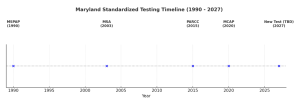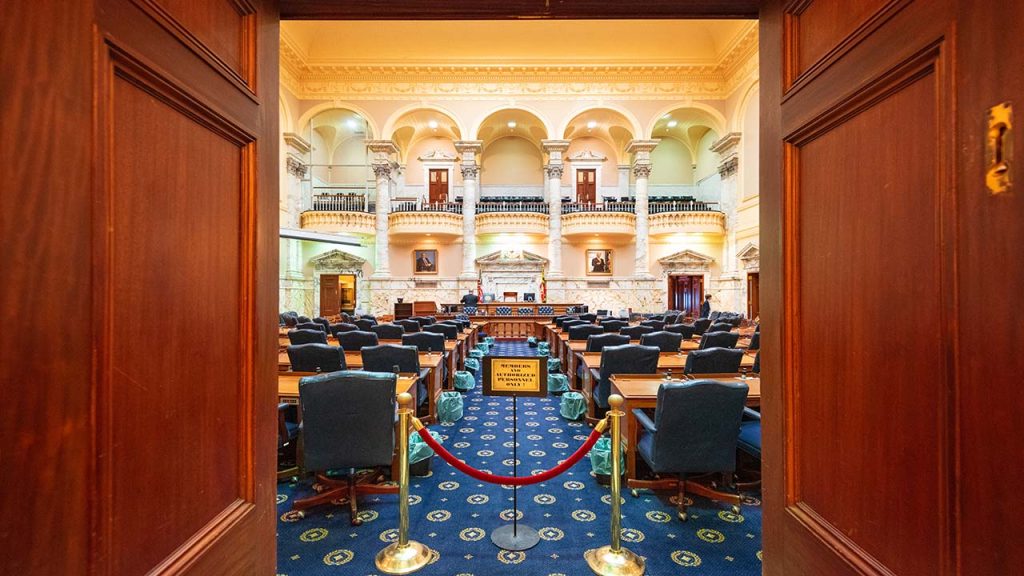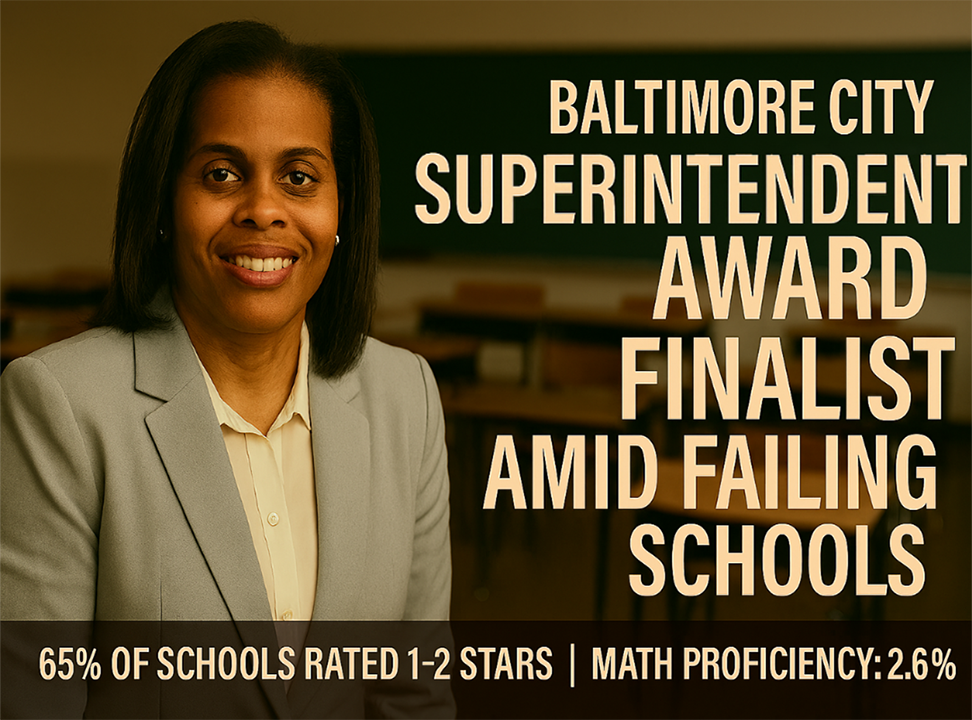

Resetting the Scoreboard: Maryland’s Assessment Cycle and the Illusion of Progress
Resetting the Scoreboard: Maryland’s Assessment Cycle and the Illusion of Progress
In Maryland, the rhythm of educational reform follows a familiar beat: a new test is introduced, expectations are reset and redefined, scores are delayed, and then, almost predictably, gains are celebrated. Within this cycle lies a concerning issue. The illusion of progress is created not by sustained instructional improvement, but by the strategic resetting of the scoreboard.
Tests mean nothing unless they are reviewed, and the test takers are assigned scores based on their performance on the test. Currently, MCAP scores are reported based on a 1-4 scale. Students must score a 3 or 4 to be considered “proficient.” Scores of individual schools, districts, and the state are made public with the key factor being the percentage of students who scored proficient. Resetting the scoreboard occurs when MSDE changes to a different method of testing and reporting scores. Who decides how well a student must perform on the test to receive a 3 or a 4? MSDE does. They call it “setting the standards.” It is the equivalent to resetting the scoreboard.
This pattern has played out across multiple generations of state assessments. In the 1990s, Maryland was a national leader in performance-based testing with the Maryland School Performance Assessment Program (MSPAP). MSPAP emphasized portfolios and project-based learning. The MSPAP was designed to provide data on school performance, not to produce scores for individual students. Parents and educators wanted to see how each student was performing, which the MSPAP could not provide. School scores were made public, and schools were held accountable. Because of this and other issues, in 2002 it was replaced with the Maryland School Assessments (MSA), which offered a more traditional standardized format. MSA remained in place until 2014, when Maryland joined the multi-state consortium for the Partnership for Assessment of Readiness for College and Careers (PARCC). MSDE thought the MSA was not rigorous enough and PARCC was aligned with Common Core standards and introduced a new scoring system that promised greater rigor and comparability.
Then came MCAP (the Maryland Comprehensive Assessment Program) launched in 2021 after the COVID-19 pandemic disrupted testing for two consecutive years. MCAP was billed as a fresh start, with updated standards and a renewed focus on measuring student mastery. But like previous tests, MCAP began with a “baseline year,” a term that has become synonymous with a strategic pause in accountability.
In 2021–22, MCAP scores were delayed while the Maryland State Department of Education (MSDE) conducted a “standard-setting process.” This meant that no school or district was held accountable for performance that year. Instead, the results were used to establish new performance levels: Beginning Learner, Developing Learner, Proficient Learner, and Distinguished Learner. Only the latter two categories were considered “proficient,” and the bar was reset.
The following year, in 2022–23, MSDE announced that scores had improved. English Language Arts (ELA) proficiency rose from 45.3% to 48.4%, and mathematics proficiency increased from 21.0% to 24.1%. These gains were celebrated as evidence of recovery from pandemic learning loss and validation of instructional efforts. By 2024–25, ELA proficiency had reached 50.8%, and math had climbed to 26.5%.
But these numbers tell only part of the story. The initial gains after a baseline year are not unusual, they’re baked into the system. When standards are reset, and expectations recalibrated, the first few years often show improvement. This happened with PARCC as well. In 2015, Maryland administered PARCC for the first time, and scores were delayed while new cut scores were established. In 2016, MSDE reported gains, particularly in ELA, and hailed the results as a sign of progress.
Yet by 2018, PARCC scores had plateaued. Criticism mounted over the test’s length, complexity, and misalignment with classroom instruction. By 2020, Maryland had begun planning its exit from PARCC, and MCAP was born.
This cycle—introduce a new test, delay scores, celebrate gains, then replace the test—is not just a technical process. It’s a maneuver that allows the state to reset expectations and control the narrative. Each new test comes with a “free year,” where no one is held accountable, and the scoreboard is wiped clean. Then, when scores rise, the gains are framed as success, even if they result from changes in scoring or test design rather than actual learning.
Compounding this issue is leadership instability. Maryland has seen multiple changes in state superintendents over the past decade, each bringing new priorities and approaches. These transitions often coincide with assessment changes, further disrupting continuity and making it difficult to sustain long-term reform. For example, PARCC’s rollout in 2015 occurred during a period of leadership turnover, and MCAP has spanned at least two superintendents, with another change in 2023.
Meanwhile, the Blueprint for Maryland’s Future was already underway when MCAP was introduced. The Blueprint emphasizes equity, career readiness, and formative assessment. We are now hearing whispers from MSDE that MCAP was not fully aligned with these goals. This misalignment is not incidental; it reflects a disconnect between assessment policy and broader educational vision. If it was not aligned, why?
So where does this leave parents and educators? In a system where the scoreboard is routinely reset, it becomes difficult to track real progress. Gains may be celebrated, but they often lack context. Accountability may be paused, but the consequences for students and schools remain. And as new assessments are introduced, the cycle begins again.
There are signs that MSDE is currently preparing to revise or replace MCAP, with a new assessment contract expected. If history is any guide, this will include another baseline year, another delay in scores, and another round of celebrated gains. But unless we break the cycle, unless we demand transparency, consistency, and alignment with the Blueprint, we risk continuing a pattern that prioritizes optics over outcomes.
The question isn’t whether students are improving. It’s whether we’re measuring that improvement honestly and consistently, and in a way that supports real learning.
Dig Deeper With Our Longreads
Newsletter Sign up to get our best longform features, investigations, and thought-provoking essays, in your inbox every Sunday.
The MEN was founded by John Huber in the fall of 2020. It was founded to provide a platform for expert opinion and commentary on current issues that directly or indirectly affect education. All opinions are valued and accepted providing they are expressed in a professional manner. The Maryland Education Network consists of Blogs, Videos, and other interaction among the K-12 community.














